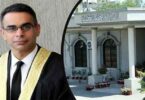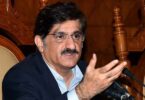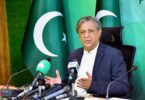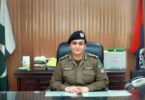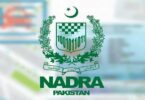F.P. Report
ISLAMABAD: The Commission on Science and Technology for Sustainable Development in the South (COMSATS) has been exploring new horizons in the last few months to strengthen linkages with the institutions and experts from the North to help improve the impact of its international programmes and add value to its South-South Cooperation activities.
As part of this initiative, Dr. John Kirkland, formally associated with the ACU-UK, has agreed to provide consultancy to COMSATS.
Dr. Kirkland, who has recently been the Deputy Secretary-General at the Association of Commonwealth Universities (ACU), UK, is currently on a four-day visit to Islamabad. He would be providing consultancy on COMSATS’ international programmes and human resource management. Decorated with the Order of British Empire, Dr. Kirkland has an experience of over 30 years in higher education management both in the context of developing and developed countries, and provides consultancy to universities, international organizations and funding agencies. At the ACU, UK, Dr. Kirkland has been overseeing programmes related to a number of universities including those from the 26 Member States of COMSATS. Dr. Kirkland has visited the COMSATS Secretariat, Islamabad, where he was received by Executive Director COMSATS, Dr. S. M. Junaid Zaidi, and his team.
Speaking to COMSATS’ officials, Dr. Kirkland appreciated the range of developing countries that are members to COMSATS and also the newest member, Somalia. He referred to his recent visit to Royal Scientific Society, London, with Dr. Zaidi and noted that the authorities there had been impressed with the exciting combination of COMSATS’ member states. He considered it important to have the organization’s mandate, role, and contributions more widely known for a better and wider impact.
Dr. Kirkland noted the trends globally in the development sector, education sector, donor agencies, as well as national policies.
Commenting on the impact assessment of scholarships, Dr. Kirkland believed that there is a need to redefine the criteria of assessing the effectiveness and efficacy of scholarships for the home country and open-minded views should be adopted that are concerned more with the betterment of the countries regardless of where the scholars work.
Taking note of the scholarships offered from the platform of COMSATS by its Centres in different countries, Dr. Kirkland believed that they should be better marketed among the beneficiary countries for a greater impact.
The education expert took keen interest in what he called ‘the period of change’ that COMSATS is going through and showed his willingness to help in the expansion of the organization. Appreciating the existing contributions of COMSATS, Dr. Kirkland especially mentioned COMSATS Institute of Information Technology (CIIT) and considered it well-connected with the institutions in the North.
Dr. Zaidi addressed a number of queries made by Dr. Kirkland including those regarding COMSATS’ membership.
He emphasized on the need to enhance the international character of organization. During the interactive meeting, Dr. Kirkland also answered a number of questions from COMSATS’ officials, inter alia, pertaining to international cooperation, best practices in the North, and academia-industry divide and relevant national policies.

